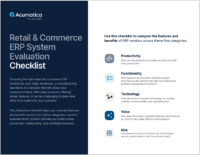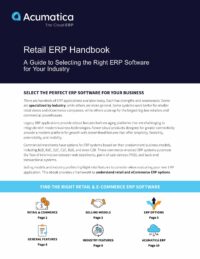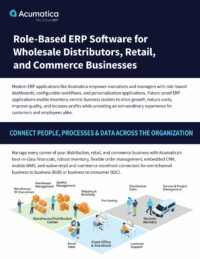The Importance of Data Analytics for Retailers
Modern companies with access to powerful retail analytics tools can unlock new opportunities for expansion that were unimaginable in the past. Retailers use accurate, easy-to-access data from different sources within and outside their company to figure out what customers buy, when they buy it, why they buy it, and how they buy it. This helps them see what might happen in the future and make better decisions. Internal data sources may include a point of sale, inventory tracking, or enterprise resource planning (ERP) system, and external sources may include demographics and market data.
The Role and Benefits of Retail Analytics
Gathering and analyzing accurate sales, inventory, pricing, and planning information helps modern retailers make better, more customer-friendly decisions that can lead to an expanding customer base and higher profits. Knowing how much inventory to keep on hand, how to price products, and what steps need to be taken now and in the future paves the way for the best, most profitable outcomes.
In addition to improving decision-making, data analysis benefits retailers by offering visibility into:
- Product performance and sales.
- Customer behavior.
- Optimal inventory levels and price points.
- Lost sales.
- Staff levels.
- Profit margins.
Retail analytics also helps retailers develop effective marketing strategies, maximize physical store layouts, and nurture sales in-store and online.
 Canada (English)
Canada (English)
 Colombia
Colombia
 Caribbean and Puerto Rico
Caribbean and Puerto Rico
 Ecuador
Ecuador
 India
India
 Indonesia
Indonesia
 Ireland
Ireland
 Malaysia
Malaysia
 Mexico
Mexico
 Panama
Panama
 Peru
Peru
 Philippines
Philippines
 Singapore
Singapore
 South Africa
South Africa
 Sri Lanka
Sri Lanka
 Thailand
Thailand
 United Kingdom
United Kingdom
 United States
United States




